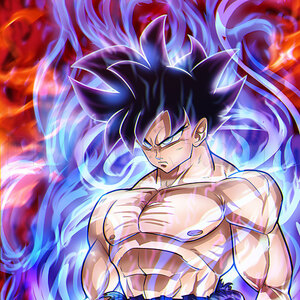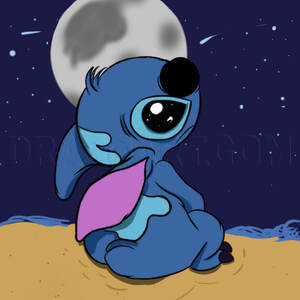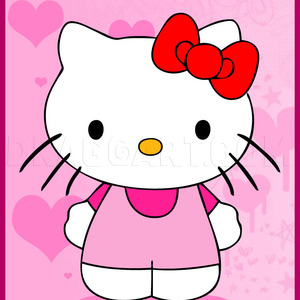4
You can draw in the lines a. for eyebrows, b. for eyes, c. for nose, d. for mouth, and e. for shoulder placements.
6
Observe where James' features appear in relation to the guidelines. Draw in his nose and mouth. Don't forget his slight mustache growth.
7
Watch closely how James' face outline, jawline, chin with a beard growth, and ear relate to the guidelines. As you draw, you will have more accuracy.
8
When you sketch his hair, add those straight lines and feathered ends. And use short jagged lines for his hairline. Try staying close to the lines that represent the direction & curls of his hair. This will help as you shade it in.
9
Now draw in the collar of his jacket, shoulder and seams. If you haven't already, you can erase your guidelines.
10
I made this line drawing especially for you if you don't want to do the pencil shading and blending part. Otherwise, let us continue to the pencil drawing part.
11
Here is the outline done with a 0.7mm mechanical pencil. Look closely and see if your lines look something like this. You can erase if certain areas like the eyes or nose don't line up. Take you kneaded eraser and dab off the shadow outlines or dark
12
This time Acrylics has won! Sandpaper, the new kid on the block has to take a back seat to my wonderful Titanium White or Opaque White Watercolors for HIGHLIGHTS! Yaaaa! Try it, you'll like it!
13
The picture that goes with this step shows two different ways to hold your pencil to acquire certain effects. OVERHAND: Holding a sharpened pencil in normal writing form with fingers in the middle or near the lead gives you great control and thin/det
14
PENCIL STROKES & TONE, SHADING, TEXTURE -- For your convenience, I have inserted this step with different pencils, strokes to use. And you can study the shapes that make up this drawing universe, along with tone, shading, and texture.
15
Best thing you can do when drawing hair is to establish the general shape then work in the main strands of hair by holding your pencil at a 45 degree angle for stroking and coverage. Then, as in the third picture, you can work in more details. But he
16
The picture here is a great exercise for value shading. I've got a little secret tip for you to make things easier. You can download this to your desktop. First click on the picture to have access to full size. By right clicking on your mouse, you ca
17
After printing out a number of the above template, practice shading in the values like this picture. You become familiar with this shading technique that gives you more control and confidence.
18
This is the first start with the pastel application. If you do the whole picture in a pencil sketch, this is where you would sketch in small circles or lines to shade the areas. It would take hours upon hours to cover all that area with a pencil. I c
19
Here I used my blending stump to "draw" in more lines, add more shading to his hair eyebrows, side of face, neck and jacket with the dark gray pastels. I needed to whiten areas like some hair strands and jacket seams. I did this with a kneaded eraser
20
I sketched in more fine facial hairs with my 9B and 0.7mm pencils. With the 0.7mm mechanical pencil (HB lead), I defined the hair strands. I applied 9B to darkly shaded areas in his hair, eyebrows and eyes. Blending with my stump, I added more charco
21
Basically, I added more highlights with Opaque Watercolor to his hair strands and corrected his collar seams and zipper. I previously covered the incorrect white seam in the collar and found it was too high, according to my ref pic. After darkening i
22
"Faint!" I could do the dance of joy. I have finally FINISHED!!! Basically, I covered my background with medium and light gray pastels to mimic a cloudy look. I smoothed the background with a tissue, leaving that textured look. Then I took my Kneaded
23
Without highlights, your picture would have a flat appearance. Click on this picture to learn how to make your own picture POP out!
Comments 0
Details
April 22, 2012
Description: James Franco (born April 19, 1978) is an American actor, writer, artist, and filmmaker. His first prominent role was a lead part on the short-lived cult hit television program Freaks and Geeks (which I loved); he later achieved recognition for playing the titular character in the TV biographical film James Dean (2001-which this tutorial picture is based on). He was awarded a Golden Globe Award for that performance. He achieved international fame with his portrayals of Harry Osborn in Sam Raimi's Spider-Man trilogy. The movie "127 Hours" he received high acclaim. "The Rise of the Planet of the Apes," "Tristan and Isolde," and "Flyboys" are a few films I enjoyed seeing him in. I just want you to have fun with this tutorial while drawing. Let me know what you experienced by commenting, faving and showing your love. Much love to you all. I cannot wait to hear from you.






















































































